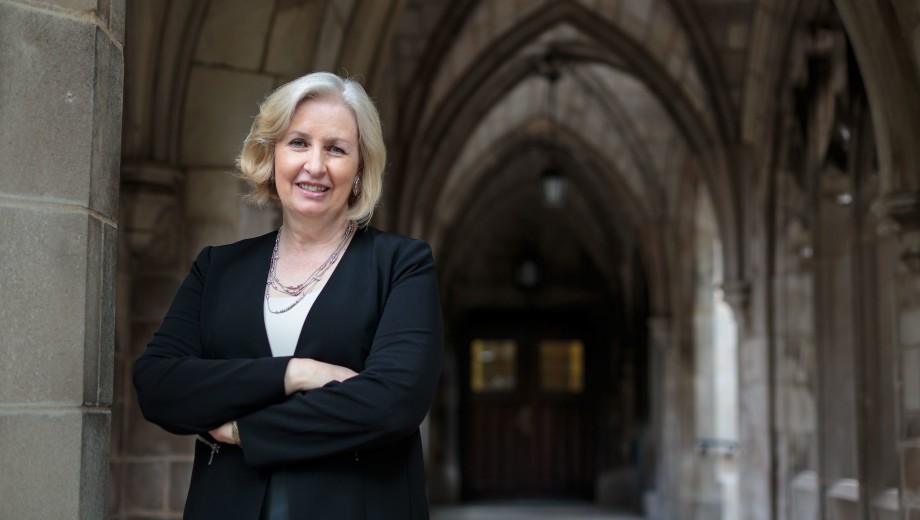Dear Alumni and Friends,
The Humanities Division has a distinguished tradition of launching innovative programs designed to deepen our understanding of humanity’s past and present while training tomorrow’s teachers and scholars in the tools essential to humanistic inquiry. Last year we inaugurated the UChicago Visiting Scholar Program in Paleography and the Book thanks to the generous support of Hanna Holborn Gray, the Harry Pratt Judson Distinguished Service Professor Emeritus of History and President Emeritus of the University (1978–93).
The UChicago Program in Paleography and the Book invites to campus a guest professor who specializes in areas that include manuscript history and reception, paleography, epigraphy, philology, codicology, the history of the book and readers, and the evolution of print culture. Selected by a faculty committee spanning the Humanities, the Division of the Social Sciences, and the Divinity School, the visiting professor enriches our community through teaching, public lectures, and student workshops at UChicago for one quarter each year.
The inaugural visiting scholar in Winter Quarter 2022, Michael Suarez, SJ—who was profiled in the spring 2022 issue of Tableau—is a renowned scholar of eighteenth- and nineteenth-century literature, bibliography, and book history at the University of Virginia, where he is University Professor, professor of English, director of the Rare Book School, and honorary curator of Special Collections. Enrollment for his UChicago class, The Printed Book in the West, held in the Hanna Holborn Gray Special Collections Research Center, filled up immediately; throughout the class, students learned to analyze material culture and the circumstances of book production. Suarez shared his research on February 24, 2022, at a well-attended public lecture: “The Book as Museum in Eighteenth-Century Europe.”
UChicago has long been a leader in understanding the social and cultural contexts in which texts and objects are produced. With the UChicago Program in Paleography and the Book, our scholars will become leaders in examining the economic, material, and physical conditions involved in creating and interpreting cultural objects.
This program is ideal for the Humanities Division, where we believe that a thorough grasp of original sources—the languages in which they were created, the means through which they were presented, and their contexts—are indispensable tools of inquiry. Understanding the history of books in all their forms is integral to this conception of humanistic learning and research.
Such an approach encompasses manuscript studies of the Bible and its reception, papyri in ancient Mediterranean civilizations, illuminated manuscripts of the medieval era, the flowering of print (and now digital) culture, and the practices of readers. The examination of these objects enriches our comprehension of a wide range of themes, including how ideas take shape and are transmitted over time, the development and circulation of religious beliefs and practices, and the social conditions in which science develops.
We look forward to hosting future specialists in many different aspects of paleography and the book, and we remain deeply grateful to Mrs. Gray for her vision and support in helping us launch this exceptional program.
Anne Walters Robertson
Dean, Division of the Humanities
Claire Dux Swift Distinguished Service Professor, Department of Music

